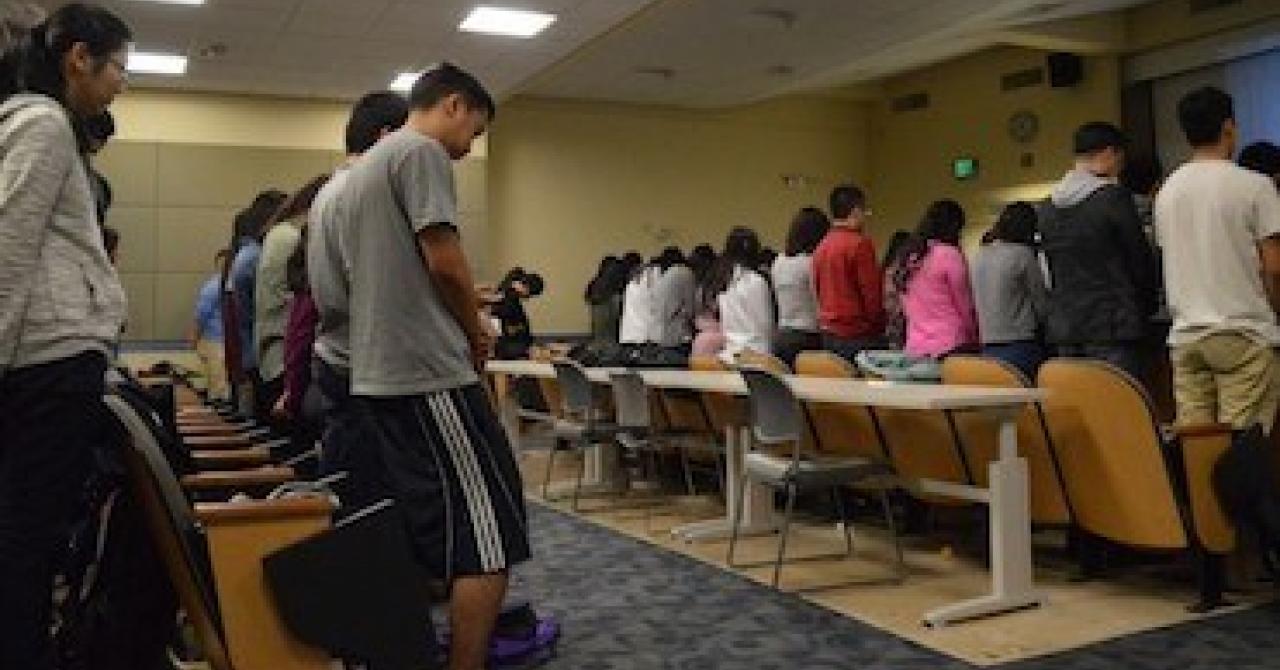
Towards an Intercultural Ecclesiology Mutual honouring and care are at the heart of an intercultural church
I love the church. I pastored in two churches and worked at two seminaries which prepared Christian men and women for service in congregation ministry. It is indeed a privilege to preach and teach from God’s Word, bring comfort to the sick, mentor volunteers or feed the hungry. These acts form the basis of Christian ministry which has no prejudice. However, a survey conducted in 2017 by Missions Fest Vancouver, revealed that churches in the Lower Mainland were predominantly homogeneous consisting of a Caucasian majority, led by a senior pastor of the same ethnic persuasion. Some of these churches described themselves as multicultural congregations as their faith community also included minority ethnic groups. The survey also revealed that the largest faith communities were not homogeneously Caucasian, but were Chinese, Korean or Filipino congregations. The development of these congregations is safely assumed to be attributed to immigration in recent years, creating diaspora communities in Canada.
This trend is not unique to Canada. Other Western nations are also experiencing the effects of global immigration. What sets Canada apart, is our value of multiculturalism that espouses a tolerance for all peoples regardless of race, ethnicity, or belief, protected by the Charter of Rights and Freedoms. However, I have observed that this value either translates into a silo effect of segregated congregations or faith communities who are multi-coloured but for whom global Christians are exempt from contributing to the life and leadership of these established churches. I believe this is a unique time in Canada’s history when a paradigm shift is required for the Canadian Church to ensure its sustainability and vitality. We live in an era where there are more Christian believers in the Majority World than all the Western countries combined. Canada is a preferred country and we have an opportunity to embrace our global brothers and sisters in Christ to build a new type of church that is not drawn along ethnic lines. Imagine that the Church of Canada could be a leader of intercultural unity of the Christian faith if we move towards an intercultural ecclesiology.
David Livermore states in Cultural Intelligence: Improving Your CQ to Engage our Multicultural World, “Our goal is not simply to learn more about different cultures, nor is it just to become better at “navigating cultural differences.” We must actually become multicultural people so that we might better express love cross-culturally.” (12) In this statement, the “our” is in reference to disciples of Christ who form the local church wherever it is located or planted. Livermore presents the argument that modern business organizations have long recognized the value in developing the cultural quotient (CQ) among their employees in order to be effective in a globalized economy. By the same token, Christian churches also have the opportunity to impact their increasingly diversifying neighbourhoods by increasing their CQ.
The basis for this assertion lies in my interpretation and understanding of New Testament narratives found in Acts 1:1-35, Galatians 3:26-29 and Revelation 7:9. I believe these verses reveal the heart of God for the nations and to worship Him together as one Body, rather than being segregated by ethnicity, class, or social status. Particularly in Revelation 7:9, the Apostle John’s vision of heaven, and all the nations who would be in God’s presence praising Him. It is interesting that the verse indicates that John saw the multitude while he heard the 144,000. We live in a time where prejudice, segregation and racism still exists despite multicultural policies put in place to ensure a peaceful society devoid of these human ills. I would submit the argument that would it not be more of a testimony of God’s power to change hearts if all Christians united by one faith, one baptism and one Spirit would transcend these human tendencies and be a living testimony of John 13:35. A world that only sees division and segregation in the church would instead see a people overcome by Jesus’ love and sacrifice.

Furthermore, a move towards an intercultural ecclesiology is based on the changing demographics of our neighbourhoods in Canada due to increased global immigration over the last fifty years. According to the United Nations Population Division, the total number of international migrants living around the world has climbed from approximately 80 million (or 2.6% of the world’s population) in 1960 to roughly 214 million (or 3% of the world’s population).1 In Canada, it is projected that by 2030, 1 in 2 two adults will have been born in a country other than Canada.2 This brief survey of immigration trends serves to highlight the reality that Canada’s population is undergoing a major international transformation.
I believe that the evangelical Christian church in Canada has an opportunity to grow in this area, and be an example of true integration in Canadian society as well as to the global Christian community. The “problem” lies with the inability or unwillingness to integrate the diverse nationalities into one Body. To explain, a multicultural mandate suggests that each culture is unique and that we accommodate all cultures alongside each other. However, there is one dominant culture and language to ensure that we can communicate and gives the impression that we are in solidarity. An intercultural mandate encourages dialogue and learning, whereby we recognize our differences, yet make something new that incorporates the values and practices of each represented group. Essentially, it is making room for other voices in established church institutions from Majority World believers, unless we believe that these voices have no place in our established churches.
Lastly, I am advocating an intercultural ecclesiology for our children and youth. They are growing up in a multicultural Canada, where their classmates and teachers are from all corners of the Earth. Their workplaces also advocate diversity and they are bombarded by messages that to be Canadian is to be inclusive of all peoples regardless of race, gender or socio-economic status. Is the church as inclusive as the rest of theirs worlds example or is it homogeneous? This disconnect is in contrast to the God whom they are told is a God of all nations, yet His people do not worship or live the Christian life together. What message are we sending to our next generation?
To move us towards an intercultural ecclesiology, we must humble ourselves and analyze our cultural blind spots. Perhaps, we may need to increase our cultural intelligence and conduct a self-analysis of our biases and assumptions. But all this activity would be for nought, if we do not believe and uphold Jesus’ command to love one another, as we love ourselves.







